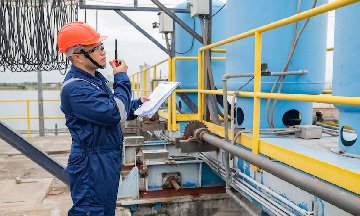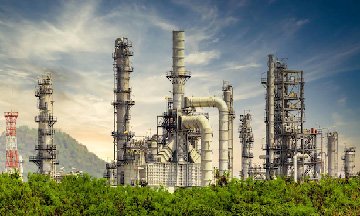Oil and Gas Maintenance Engineer Training Course
| Date | Venue | Duration | Fees | |
|---|---|---|---|---|
| 20 May - 24 May, 2024 | Dubai | 5 Days | $4750 | Register |
| 03 Jun - 07 Jun, 2024 | Dubai | 5 Days | $4750 | Register |
| 24 Jun - 28 Jun, 2024 | Berlin | 5 Days | $5695 | Register |
| 22 Jul - 26 Jul, 2024 | Dubai | 5 Days | $4750 | Register |
| 05 Aug - 09 Aug, 2024 | Dubai | 5 Days | $4750 | Register |
| 19 Aug - 23 Aug, 2024 | Houston | 5 Days | $5695 | Register |
| 11 Sep - 13 Sep, 2024 | Kampala | 3 Days | $4100 | Register |
| 30 Sep - 04 Oct, 2024 | Dubai | 5 Days | $4750 | Register |
| 07 Oct - 18 Oct, 2024 | Prague | 10 Days | $9850 | Register |
| 07 Oct - 11 Oct, 2024 | Dubai | 5 Days | $4750 | Register |
| 11 Nov - 15 Nov, 2024 | Dubai | 5 Days | $4750 | Register |
| 02 Dec - 04 Dec, 2024 | Nairobi | 3 Days | $4100 | Register |
| 02 Dec - 06 Dec, 2024 | Dubai | 5 Days | $4750 | Register |
Course Overview
Oil and gas maintenance engineers are important in the energy industry because they ensure that machinery used in the oil and gas sector is in working condition and properly maintained. Their main responsibility is coordinating and implementing maintenance programs to ensure that equipment is working as they are supposed to work. Other responsibilities include overseeing maintenance schedules troubleshooting issues as they arise and conducting research and development to develop new tools for maintaining equipment and machinery.
Due to these responsibilities, oil and gas and maintenance engineers must possess an understanding of the oil and gas production process thoroughly to ensure equipment is operating efficiently and safely. Zoe Talent has designed this course to equip the participants with the relevant knowledge and skills to undertake these responsibilities.
What is the role of a certified oil and gas maintenance engineer?
The main role of a certified oil and gas maintenance engineer is to ensure that all equipment and machinery are well maintained at all times in the industry. To achieve this, they must perform regular inspections, keep records of all maintenance activities, and make necessary repairs.
What are the responsibilities of a certified oil and gas maintenance engineer?
A Certified oil and gas maintenance engineer has the responsibility of ensuring all the equipment is in good working order and that all the required repairs and replacements are made efficiently and in a timely manner.
The course is intended to prepare participants thoroughly and enable them to become successful oil and gas maintenance engineers. It will cover topics including troubleshooting, maintenance techniques, maintenance scheduling and planning, and equipment repair.
Course Objectives
This course intends to help the participants to be able to:
- Gain the knowledge and skills necessary to perform maintenance activities safely and effectively in the oil and gas industry
- Understand how to properly document maintenance activities
- Identity and correct equipment problems in a timely manner
- Commit to safety and environmental protection
- Learn how to troubleshoot, repair, and perform preventive maintenance
- Learn the latest advances in oil and gas production and processing technologies
- Develop a better understanding of the role of the oil and gas maintenance engineering profession
- Learn how to perform maintenance activities
- Understand the importance of maintenance
- Understand the principles of maintenance planning and scheduling
Training Methodology
This course will be delivered using a variety of methods including video, text, and audio. The videos will be used as references and made as easy to follow as possible. The audio method will involve lectures, role-playing, and discussion boards. The text will involve online resources, textbooks, PDFs, and online courses.
All the participants are highly encouraged to be engaging to ensure full retention of what they will be trained on.
Organisational Benefits
Organisations that will have professionals that have undertaken this course will benefit in numerous ways, including
- Knowledgeable professions in oil and gas production maintenance procedures
- Proper equipment for maintenance acquisition
- Well-developed maintenance model
- Compliance with regulatory bodies
- Save money on maintenance
- Satisfied clients due to reduced downtime
- Cost cutting on downtime expenditure
- Increased productivity due to improved maintenance practices
Personal Benefits
Some of the personal benefits to the professionals who will undertake this course include
- Increased ability to diagnose and fix oil and gas equipment issues
- Better understanding of the maintenance regulations in the oil and gas industry
- Improved confidence to communicate with oil and gas professionals
- Increased ability to carry out repair procedures and maintenance
- Mastering maintenance techniques
- Increased maintenance knowledge
- Improved quality of work
- Ability to lead better job performance
- Apply the concepts learned to solve real-world problems
- Understand the basics of maintenance engineering, including the different types of maintenance activities and their objectives
Who Should Attend?
This course will greatly benefit the following professionals:
- Site engineers
- Technicians working in the oil and gas industry
- Maintenance engineers
- Project managers
- Operations managers
- Supervisors
- Regulatory and supervisory officers
- Operations technicians
- Operators
Course Outline
Module 1: Basic Tools and Safety
- Motor control
- Turbines safety
- Rigging
- Basic Electricity
- Welding safely
- Safety in the workplace
- Pumps and compressors
- Pipefittings and safety issues
Module 2: Environmental Regulations and Compliance
- Outline best practices for environmental compliance
- Impact of environmental regulations on maintenance engineering
- The role of a certified oil and gas maintenance engineer in the environmental compliance
- Waste regulations
- Common environmental concerns in the oil and gas industry
- Compliance requirements for environmental regulations
Module 3: Maintenance Planning and Scheduling
- The benefits of effective maintenance planning and scheduling
- Steps involved in creating a maintenance schedule
- Using the master schedule
- Role of technology in effective maintenance planning and scheduling
- Determining the purpose of each activity in the system
- The key components of a successful maintenance plan
- Challenges of maintenance planning and scheduling
- Factors to consider when planning and scheduling maintenance
- The future of maintenance planning and scheduling
- Identifying and using each report for planning
- Importance of maintenance planning and scheduling
Module 4: Preventative Maintenance
- Importance of preventive maintenance
- The challenges
- Best practices to follow
- Developing a preventive maintenance plan
- Implementing the preventive plan
- Troubleshooting preventive maintenance issues
Module 5: Maintenance Records and Documentation
- Maintenance logs and documentation
- Maintenance system records
- Work order systems
- Equipment manuals and documentation
- Preventive maintenance records
- Computerized maintenance management systems (CMMS)
- Maintenance reporting
Module 6: Equipment Life Cycle Management
- Equipment design and selection
- Reliability-centered maintenance
- Predictive maintenance
- Operations and maintenance planning
Module 7: Maintenance of Pumps, Compressors, and Other Rotating Equipment
- Vibration analysis and balancing of rotating equipment
- Selection and procurement of pumps, rotating equipment, and compressors
- Troubleshooting and repairs
- Operation and maintenance
- Lubrication
- Maintenance procedures
Module 8: Tank and Vessel Maintenance
- LNG maintenance
- Offshore and onshore vessel maintenance
- Oil and gas tank maintenance
- Inspection methods
- Floating production storage and offloading (FPSO) vessel maintenance
- Common problems and repair methods
Module 9: Maintenance of Pressure and Safety Relief Valves
- Standard operating procedures for maintaining pressure and safety relief valves
- Common issues with pressure and safety relief valves
- Troubleshooting techniques and methods
- Best practices
- Repairing pressure and safety valves
- General inspection and maintenance requirements
Module 10: Mechanical, Electrical, and Piping Systems Maintenance
- HVAC systems maintenance
- Handling compressed air
- Pipeline systems
- Process vessels and reactors
- Hydraulic systems
- Filtration maintenance
- Pneumatic systems repairs
- Industrial refrigeration systems
Module 11: Maintenance of Pumps
- How to safely store and handle pump repair parts
- How to properly document pump maintenance
- The importance of regular pump maintenance
- Best practices to maintain different types of pumps
- Developing maintenance schedule for pumps
- Types of pumps
- Common pump repairs
- Troubleshooting pump issues
- Replacing pump seals
- Pump operation and maintenance











